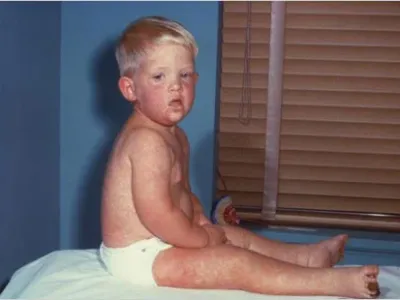Florida today reported three more locally acquired Zika virus cases, all linked to the same affected part of Miami, as a top federal health official announced an $81 million shift in funding to keep the battle against the virus going.
Florida total grows; affected area shrinks
The new cases announced by Florida today push the number of local Zika infections to 25. All patients were exposed in the same area of Miami-Dade County, according to a statement from the Florida Department of Health (Florida Health).
Florida Gov. Rick Scott also said in a statement today that Florida Health has cleared four more blocks in the Wynwood neighborhood that has been the hot spot for local illnesses. Last week, the state cleared 10 blocks of the neighborhood. "Cleared" means testing was done and no people tested positive.
With 14 blocks now cleared, Scott said, "This means the area where we believe active transmissions are occurring in the state is significantly reducing."
Though officials don't think active transmission is occurring in the 14-block cleared areas, health officials are still monitoring the whole 1-square-mile area in north Miami—a popular entertainment district just north of downtown—that has been identified as the only source of the non-travel–related Zika illnesses. However, officials are still investigating where two earlier-reported patients were infected—one from Palm Beach County and one from outside of the 1-square-mile area of Wynwood.
Florida Health today also reported 21 more travel-linked Zika cases, boosting the overall total in the state to 404. The number of pregnant women with travel-linked Zika in Florida remained at 57.
HHS to transfer $81 million for Zika
In a letter to congressional leaders today, Health and Human Services (HHS) Secretary Sylvia Burwell said because lawmakers have not approved a funding request to support the Zika outbreak response, she has shifted $81 million more in existing funds to keep vaccine development going until the end of the fiscal year. She said $34 million is for the National Institutes of Health (NIH) and $47 million is for the Biomedical Advanced Research and Development Authority (BARDA).
In the letter, posted on Democrat House leadership's Web site, Burwell said the NIH and BARDA have said their Zika funds would be exhausted by the end of the month, and without more financial support they would be forced to delay critical vaccine development activities.
She said the NIH money was coming from other NIH accounts, which hurts efforts to support the work of the nation's leading scientists, "But the lack of a clean, bipartisan Zika funding bill has left me no choice but to move forward with this action at this time."
The funding transfer for NIH will cover the design of a phase 2 trial for a DNA-based vaccine that recently entered a phase 1 trial.
Even with the extra $34 million in funding, the NIH estimates it will need $196 million through the end of the 2017 fiscal year to continue with vaccine and diagnostic test development and other research on Zika. Burwell said currently there is no funding to support three other vaccine candidates that the NIH has identified.
Burwell added that the shift in funds to BARDA is coming from the Administration for Children and Families, the Centers for Medicare and Medicaid Services, and the Substance Abuse and Mental Health Services Administration.
The new shift in funding exhausts short-term options for battling Zika, she said, warning that when Congress returns to Washington in September, it will have less than 1 month to provide resources to keep key frontline efforts going, such as Centers for Disease Control and Prevention (CDC) work in Puerto Rico, Florida, Texas, and other areas working to curb the spread of the virus. Burwell also said lack of a funding package would stall the work of BARDA and its corporate partners.
"In short, allowing any of these scenarios to come to pass puts the American people needlessly at risk and will result in more Zika infections and potentially more babies being born with microcephaly and other birth defects," Burwell wrote.
Semen persistence, microcephaly in Haiti, CDC travel notice
- Traces of Zika virus RNA can persist in semen for as long as 6 months, longer than previously thought, Italian researchers reported today in two separate Eurosurveillance reports involving men who traveled to Haiti, one in his early 40s and one in his early 30s. In the first report, Zika virus was still detectable in semen 181 days after symptom onset, and shedding in saliva persisted until day 47. In the second report, evidence of Zika persisted in semen up to day 188 after symptom onset, and viral RNA was found in saliva and urine 91 days after symptom onset.
- Two babies were born with microcephaly just weeks apart in Haiti this summer, and blood samples from the infants is being tested at the country's health ministry as part of the investigation into a possible link to Zika virus, Partners in Health (PIH), a nongovernmental organization working in Haiti, said in an Aug 9 statement. Louise Ivers, MD, senior health and policy advisor and an infectious disease expert with PIH, said in the statement that the two cases raise concerns that the spread of Zika in Haiti has been underestimated.
- The CDC today added the Cayman Islands to its level 2 travel notice for Zika virus. It urges pregnant women to avoid traveling to areas where the virus is spreading locally and for childbearing-age women and sexual partners who travel to affected areas to take extra precautions.
See also:
Aug 11 Gov. Rick Scott statement
Aug 11 Florida Health daily Zika update
Aug 11 Secretary Burwell letter





















